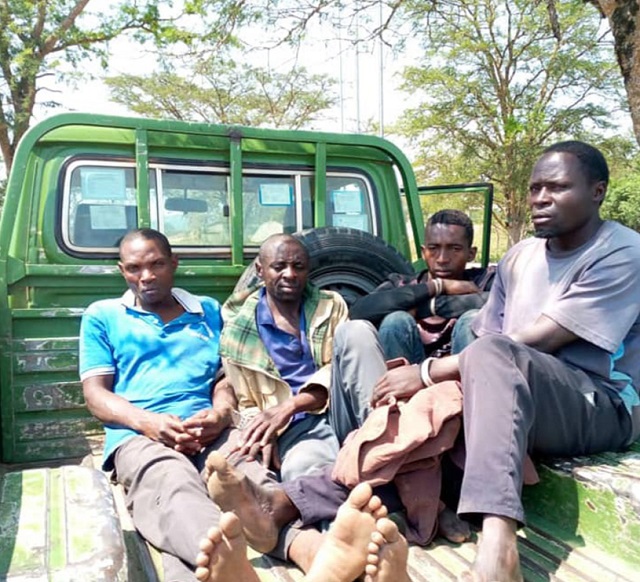
John Makombo, the UWA director for conservation attributes the surge in poaching to the lockdown, lost income for people who work in the tourism industry and inadequate human resources to cover all the conservation areas.
“That loss of benefit has led to job loss and unemployment of many stakeholders,” Makombo said. “Some of the jobless community members have turned their spears against the wildlife as poachers.”
Dr. Gladys Kalema-Zikusoka, the executive director of Conservation Through Public Health; a local non-profit that works with communities around Bwindi to appreciate the benefits of conservation, said the COVID-19 pandemic has led to a suspension of primate tourism in Uganda to protect the great apes from human disease and prevent probable spread of the virus among the rare apes.
Mwanda said, although the poachers are likely to spend their whole lives in prison, thanks to the tougher UWA Act, 2019, the killing of Rafiki by the poachers could deny Uganda revenue in the excess of about Shs 600 million per year.
Speaking to local broadcaster NTV on June 15, Mwanda expressed fear for the future of the Nkuringo group now that Rafiki had been killed.
“It’s still early days but the Nkuringo group could disappear entirely,” he said, “The group may disintegrate because of a leadership vacuum.”
Whereas conservationists were hopeful that another silverback would emerge, it is the painstaking process of habituating another group that they found frustrating. Mwanda said habituating a group of 10 gorillas could take up to two years.
The rise in poaching incidents in Uganda’s national parks tallies with predictions made in a recent research by the conservation group, United for Wildlife Taskforce in partnership with the Basel Institute on Governance.
In a report published in April, this year, they said poaching by both subsistence and organised criminal gangs was expected to go up in the COVID-19 period thanks to local security vacuums in the areas heavily hit by the pandemic.
They said poachers would take advantage of law enforcement and security forces being re-prioritized to pandemic response or keeping public order.
The report predicted that there would be significantly more incentives and opportunities for local people and unscrupulous wildlife rangers to engage in and or facilitate poaching both for subsistence and for profit, due to declining economic and social welfare of local communities living near parks and private reserves.
Another rapid assessment report on the impact of COVID-19 on wildlife trafficking published by the Wildlife Justice Commission published in April predicted that criminal networks would exploit perceived opportunities of park closures, reduced patrols in protected areas, or the diversion of law enforcement resources to deal with COVID-19 issues.
Mwanda, however, noted recently that although UWA had doubled its patrol of the parks, it is impossible to eradicate poaching in Uganda’s national parks.
“We can only reduce it,” Mwanda says. He says close to 4000 poachers are arrested every year in Uganda’s protected areas.
The UWA says wildlife in Kidepo; Lake Mburo, Murchison Falls and Bwindi Impenetrable national parks remain vulnerable despite efforts to enhance patrols around protected areas.
The authority is ensuring its rangers spend more time with the gorillas, which are the main attraction in the parks—to lessen the chance that they could wander off and be killed.
He said UWA’s priority remains to protect wildlife and their habitats as well as addressing human-wildlife conflict by continuing to protect wildlife habitat and protected area boundaries, curtailing poaching and illegal wildlife trade, reducing incidents of human-wildlife conflicts through electric fencing, trenches, bee keeping, translocations and partnering, collaborating, coordinating and working with other conservation agencies, and friends of conservation around the globe to ensure the protection of wildlife resources.
Generally, East Africa has seen a reduction of between 58%-78% in tourism arrivals due to COVID-19, according to Christophe Bazivamo, the deputy secretary general, productive and social sectors at the East African Community.
Speaking also at the East African Community conservation zoom meeting on June 23, Bazivamo said since East Africa is home to some of the greatest global concentrations of large mammals in both protected and non-protected areas, the community’s tourism industry depends heavily on wildlife and brings about US$6 billion annually, contributing 9% to the region’s GDP and 8% to employment.
****
 The Independent Uganda: You get the Truth we Pay the Price
The Independent Uganda: You get the Truth we Pay the Price





